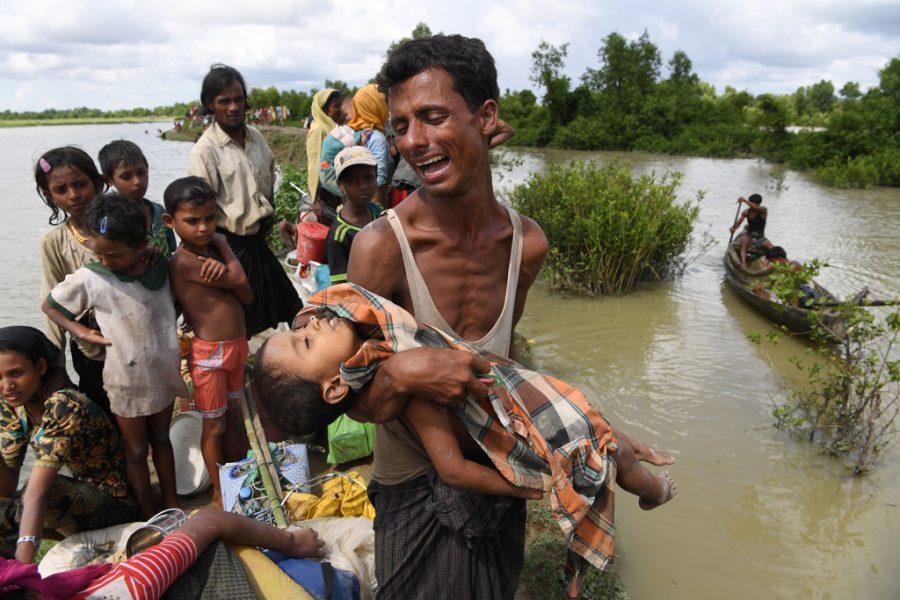Ethnic Cleansing
(Photo Source: Foreign Policy)
October 20, 2018
In an AP U.S. History class at Pentucket High School, 19 students were asked if they knew anything about the terms “Rohingya” and “Myanmar,” and their relation. Only one person raised his hand.
In Myanmar, the government is actively persecuting, burning, and bombing the sect of Muslims called the Rohingya. They claim their actions are motivated in a struggle to end terrorism, yet women and children are being murdered ruthlessly.
The Myanmar government has been discriminate towards the Rohingya for decades, and recently an uprising by the Rohingya has taken action against the government.
In 2016, their first outright attack was along the Myanmar border, where they killed an unknown amount of Myanmar border officers and soldiers. Reports vary from 13 deaths to a vague estimate of “dozens” by other cites.
Named the Arakan Rohingya Salvation Army (ARSA), they have said their entire purpose is to “defend the rights of Rohingyas.”
Despite this seemingly benevolent intent, the Myanmar government has accused them of many things, including being paid by Islamic extremists. This claim has no basis, and ARSA has publicly said as much.
However, his small group of defenders has given the Myanmar government the ability to defend their actions, despite the hugely disproportionate death toll.
Around 50,000 Rohingya have been killed, but estimates are hard to make, as Myanmar does not have reliable citizenship records. They consider Rohingyas to be illegal immigrants and have not included them in recent censuses.
The local government also claims publicly that the Rohingya are burning down their own homes “to garner international sympathy.”
Ethnic Rakhine, a people who have deep roots in Myanmar, have been relentlessly attacking Rohingya in their state. Vigilante mobs accompany Myanmar soldiers as they execute what is being called an “ethnic cleansing,” hacking those who flee in the head with machetes and farming scythes.
The BBC interviewed a few of those who have experienced the violence. One of them was Noor Alam, a 25-year-old Rohingya. “This fight is not just about my fate or my family’s fate,” he said, taking shelter in a forest after their village in Western Myanmar had been burned down. It isn’t about the individual fighters, but to him, it was about all his people and attaining future peace.
Mohammed Harun, the ten year old nephew of a village ARSA chief, nodded his head when his father said that if his son died for the Rohingya cause, “then it is Allah’s will.”
“I would go to fight,” Harun said. “I am not scared.”


Layla Sullivan • Oct 22, 2018 at 10:52 am
I think it is important that more people are informed about what is going on so that everyone can work towards trying to end this abuse.
Cera Whitney • Oct 22, 2018 at 10:44 am
This is a great lead, I saw it on the slideshow on the front page and it grabbed my attention right away. I read the fist paragraph and instantly wanted to read more and learn about these unfamiliar words. Great job Casey!
Leanne Flink • Oct 22, 2018 at 9:05 am
This was very interesting!